THE MESSENGER: THE STORY OF JOAN OF ARC (1999)
A young girl receives a vision that drives her to rid France of its oppressors.
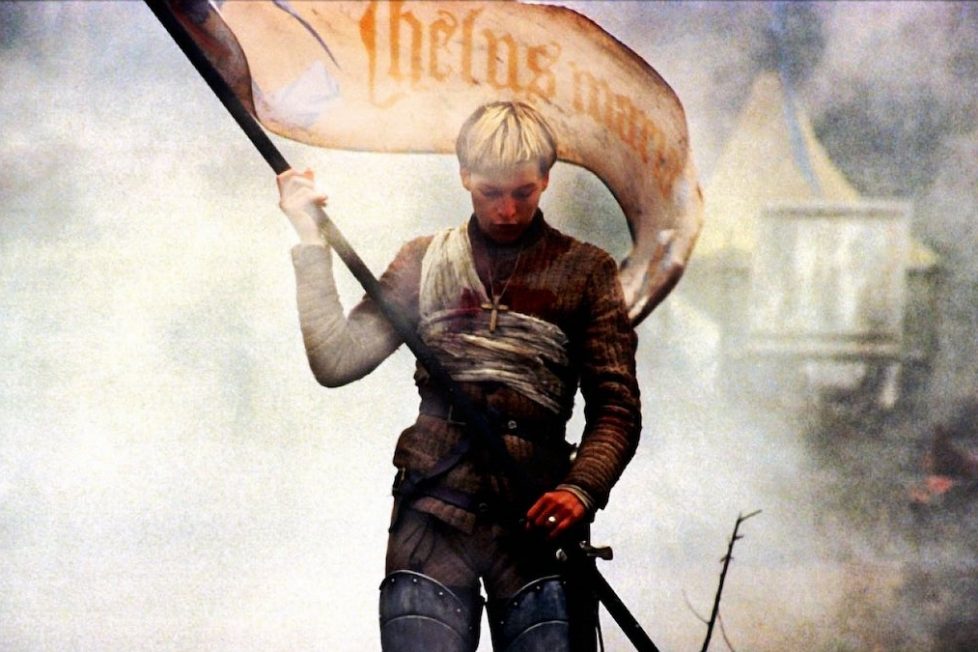
A young girl receives a vision that drives her to rid France of its oppressors.


Luc Besson, perhaps the most ‘Hollywood’ of French filmmakers, stamps The Messenger: The Story of Joan of Arc with all his signatures: there’s obviously a strong woman at the centre, her struggle against oppression, lots of weapons, and an emphasis on aesthetics and sensation above language and subtlety that characterised the cinéma du look movement of which Besson was a prominent member.
StudioCanal’s re-release on Blu-ray certainly serves that aspect of the movie well: if it’s luscious visuals you’re after, this is the next best thing to being in the cinema (although it’s the kind of film that demands a big-screen experience). The question is whether Besson’s style suits the story he’s telling; it’s not impossible to make an action-oriented Joan of Arc biopic, “assaying the fine line between spirituality and kicking ass” as IndieWire described it, but it’s so at odds with the conventional image of the Maid of Orleans that it can feel absurd. It’s like the character has landed in the wrong film.
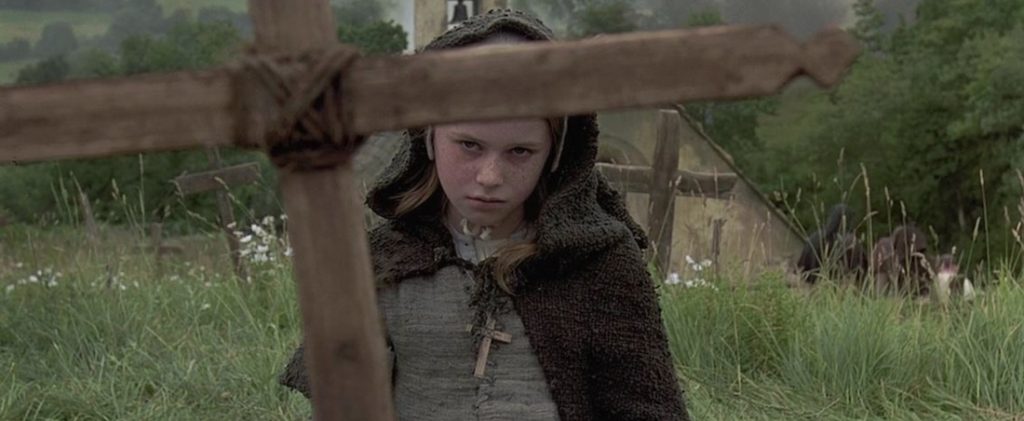
A careful hand might’ve been able to avoid that, but Besson and co-writer Andrew Birkin don’t seem sure how to make the tale and style fit together. Besson is a visual storyteller who’s all about movement, strongly influenced by the comic-books he read as a child. And like a comic-book, The Messenger shows you things in quick succession, a few frames sooner than most other films would dare. This can work superbly during the action sequences, but it leaves little time for thoughtful nuance. As a result, the sequences where Besson and Birkin do try for more depth—notably, a long dialogue near the end between Joan and her conscience (Dustin Hoffman in an Obi-Wan Kenobi outfit)—give the impression of coming from a different film. As indeed does the bizarrely Bondish effect of a song accompanying the end credits.
The Messenger opens in a strangely old-fashioned manner, with a map of 15th-century France and long explanatory titles, but these seem to be primarily a means of getting exposition out of the way. The movie soon becomes a modern and action-packed take on the story of peasant girl Joan (Milla Jovovich), who believes God has charged her with liberating France from the English, who’s soon leading the French army in propelling them victoriously forward through her charisma and conviction more than any military sense.
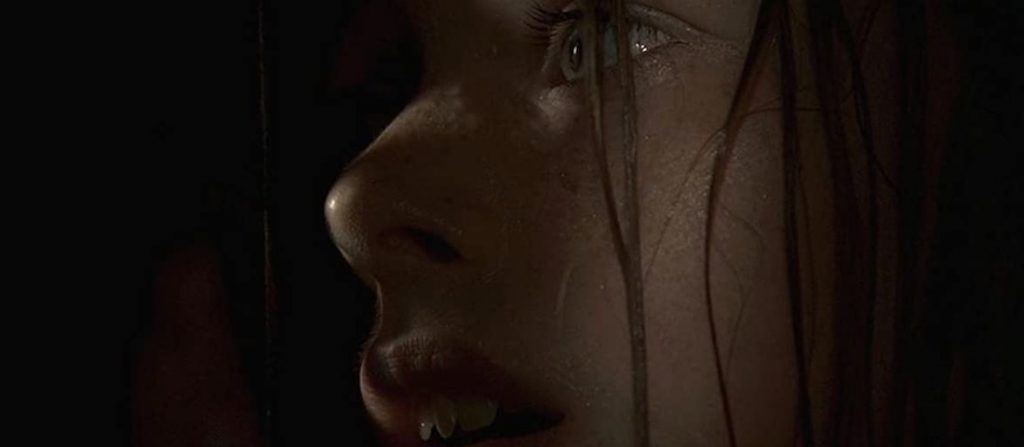
She is, of course, a case where the popular folklore is now far more powerful than the historical reality. So it’s unsurprising that The Messenger isn’t entirely accurate in all the incidents it portrays. Still, the facts it presents are close enough to the true story, and while there are a few briefly bewildering narrative jumps, it’s easy enough to follow. (The film had its origins in an aborted Kathryn Bigelow project—how different that would have been from Besson’s version!)
However, in style, it’s about as unconcerned with historical authenticity as one can get, being a larger-than-life fantasy. Early on there’s an atmosphere of myth (a burning village foreshadows Joan’s destiny as if it’s preordained… Joan inexplicably finds a gleaming sword in a field… Joan faces wolves in the forest) and throughout there are scenes explicitly depicting her visions. These are largely demolished in the Hoffman conscience sequence (“you didn’t see what was, Jeanne, you saw what you wanted to see”), but by then it’s far too late in the movie to counteract the extreme unrealism of the first two-hours, and it’s difficult to know what the point of this whole section is.
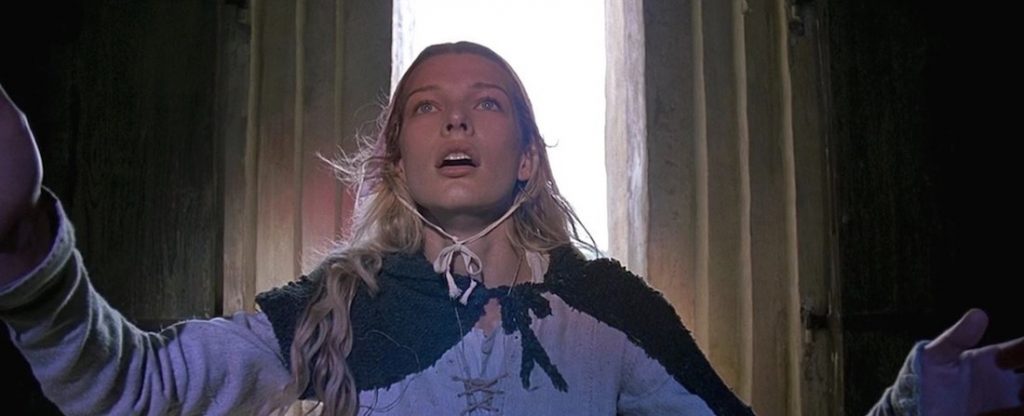
It might seem like Besson and Birkin have been hyping Joan up only in order to then knock her down, but perhaps they’re doing the opposite: emphasising how a young, powerless, and possibly mentally ill woman achieved all these things without the help of miracles? Indeed, The Messenger’s message is a bit obscure, if tantalising, not only here but at other times too. For example, there’s briefly a suggestion that Joan’s the champion of ordinary folk, yet her political awareness seems minimal. It’s almost as if Besson and Birkin are casting around for a meaning for their Joan and can’t decide on what it should be.
The result, in any case, is a jarring shift in tone when Hoffman appears, and one that smacks slightly of desperation: having been unable to get any of these ideas into the busy main part of the film, Besson and Birkin now tack them on as a kind of contemplative appendix.
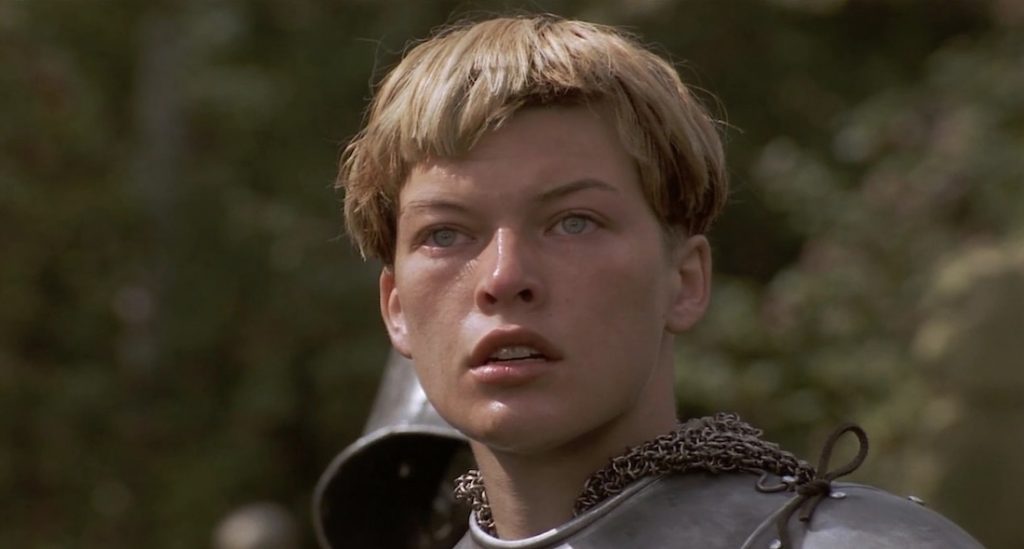
Jovovich, as the eponymous heroine, does the best she can with a character who’s ever-present in the narrative yet only given a narrow range of things to do: look nervous, appear divinely inspired, argue with men, and lead people into battle. A former model (and Besson’s wife at the time), who had achieved real stardom with her part in his previous film, The Fifth Element (1997), Jovovich was nominated for a Golden Raspberry for ‘Worst Actress’ for her performance here. But while she does overdo the emotions at times, she’s not that bad at all, managing to convey Joan’s vulnerability as well as her strength, giving us a young woman who’s confident also wide-eyed. She’s filled with a passion but immature, determined but lacking self-control, throwing herself into war yet obsessed with mass and confession.
“I am the drum on which God is beating out his message,” Joan is reputed to have said. This line is used in the movie and the musical metaphor is the right one because this Joan is all about single-minded insistence: God has sent her to lead the French against the English, and they will win, and that’s it. She’s so intense, so angry, and there’s a great brief shot of her riding into battle where she’s wild-eyed, screaming… yes, crazy. (In reality, it appears Joan of Arc was probably not quite as dysfunctionally fanatical as the movie presents her, though she could be abrupt.)
Elsewhere in the cast are lots of grotesque medieval faces (often shot from below to exaggerate their strangeness) and a few well-known names. John Malkovich can never, of course, get away from his own persona, yet as King Charles VII he at least gives his role some depth. His King is intelligent but undecided about Joan, and we’re not sure if he’s sly or simply weak. Timothy West is also credible as Pierre Cauchon, a bishop who urges Joan to recant her supposed heresies so she won’t be burned at the stake.
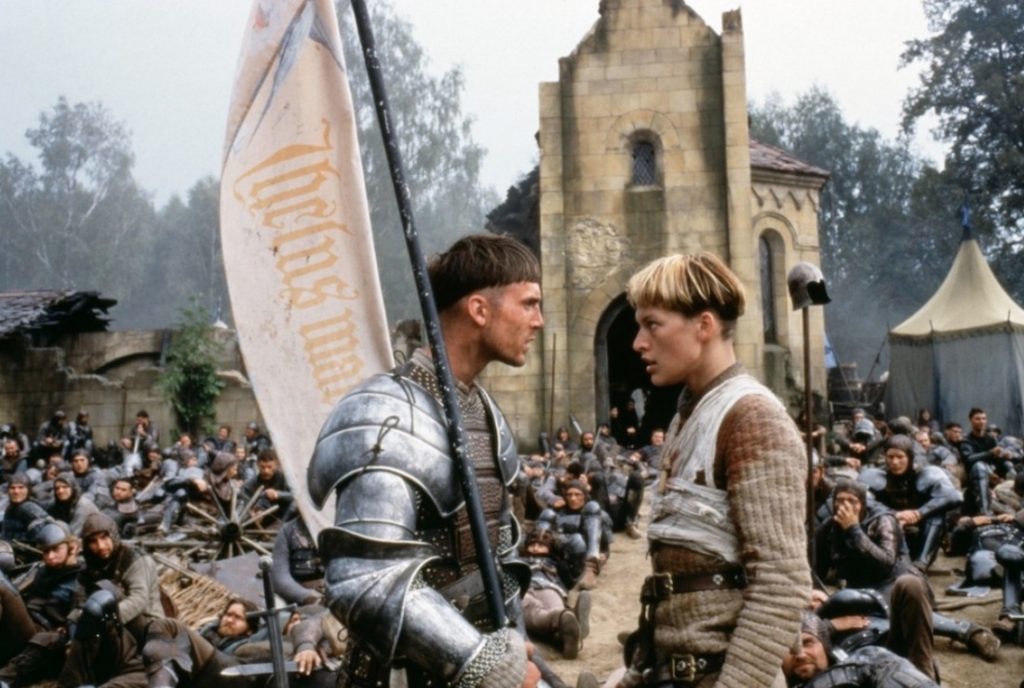
Less satisfactory is Desmond Harrington’s wooden Jean d’Aulon, a young courtier with whom Joan has an unconvincing friendship-perhaps-verging-on-romance. The screenwriter Birkin, meanwhile, also appears as the England commander John Talbot. Many of the other men (in a movie dominated by them) are rather interchangeable and even indistinguishable, but Vincent Cassel—a fine performer in both French and Hollywood film from Ocean’s Twelve (2004) to Mesrine (2008)—is striking as the nobleman Gilles de Rais. It was revealed years after Joan’s death that he was a sadistic serial killer of children and duly executed, but The Messenger doesn’t get into that business!
The biggest problem with The Messenger, however, is its flatness. Not that it’s flat in the sense of being boring second-to-second (Besson’s often hyperactive directorial style ensures that), but in the sense it almost entirely lacks dramatic depth and texture, or ups and downs. It generally shows you one person or incident at a time, all equally weighted. There are longer scenes—for example when Joan must prove her divine inspiration to the court by picking the king out of a crowd, but there’s still little rhythm or reason to them, and no heightening and release of tension.
This is the case, amazingly, even with the final passage leading up to Joan’s execution (which, supposedly, US preview audiences thought was too depressing for a finale… but it’s not clear what they expected). What could have been a tragic climax, or at least the sublime transfiguration of Joan into sainthood and legend, is almost an anticlimax! And it’s difficult to escape the conclusion that Besson’s direction, more than anything, is to blame. Throughout The Messenger he’s given us ample instantaneous excitement, but at the expense of any long-term investment in what happens to the character. The payoffs (shock, satisfaction, awe) from any scene—-from any moment, really—are so quick there’s no time for suspense or curiosity to develop.
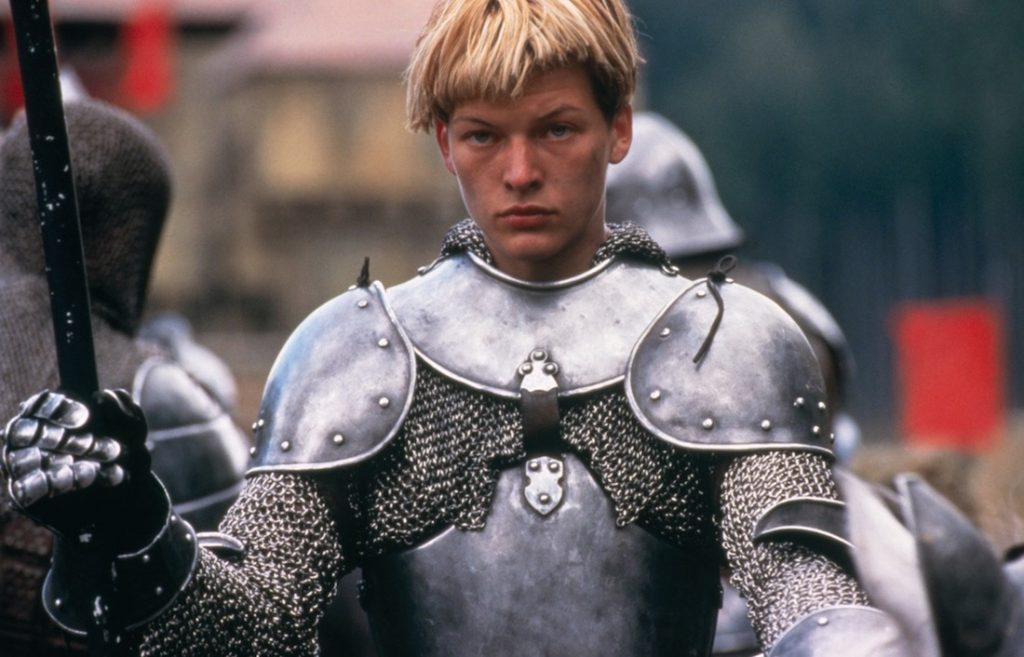
The Messenger wasn’t a box-office success (grossing $67M from a $60M budget), and neither was it a critical hit. The Guardian found it “a crass and interminable movie that miraculously transforms one of the most remarkable women of the 15th-century into an irritating brat”, while The New York Times observed that “The Hundred Years War feels twice that long”. Besson didn’t direct for six years afterwards, and though he since had a substantial hit in Lucy (2014), as well as producing and writing extensively elsewhere, his directorial career never really recovered its pre-Messenger glory.
Joan of Arc, meanwhile, continues to grace the screen with regularity. There have been at least five movies about her since Besson’s in 1999, most recently Bruno Dumont’s Joan of Arc, screened at the Cannes Film Festival last year. The most famous versions of her story remain the earlier ones, though, notably Carl Dreyer’s The Passion of Joan of Arc (1928), Victor Fleming’s Joan of Arc (1948), and Otto Preminger’s Saint Joan (1957)—and it’s unlikely that The Messenger will join them.
For fans of Besson or for that matter fans of Saint Joan, it is at least an interesting curiosity, and it can’t be denied that it is ambitious and original in many respects. But it suffers from fundamental problems, in not really engaging with the character or exploring the phenomenon of an obscure woman elevated to leadership in a man’s world. It might depict them on a superficial and literal level, but that’s all that it does: show us stuff that, despite its frenetic activity, never comes alive.
FRANCE • CZECH REPUBLIC • USA | 1999 | 158 MINUTES | 2.39:1 • 2.35:1 | COLOUR | ENGLISH • LATIN

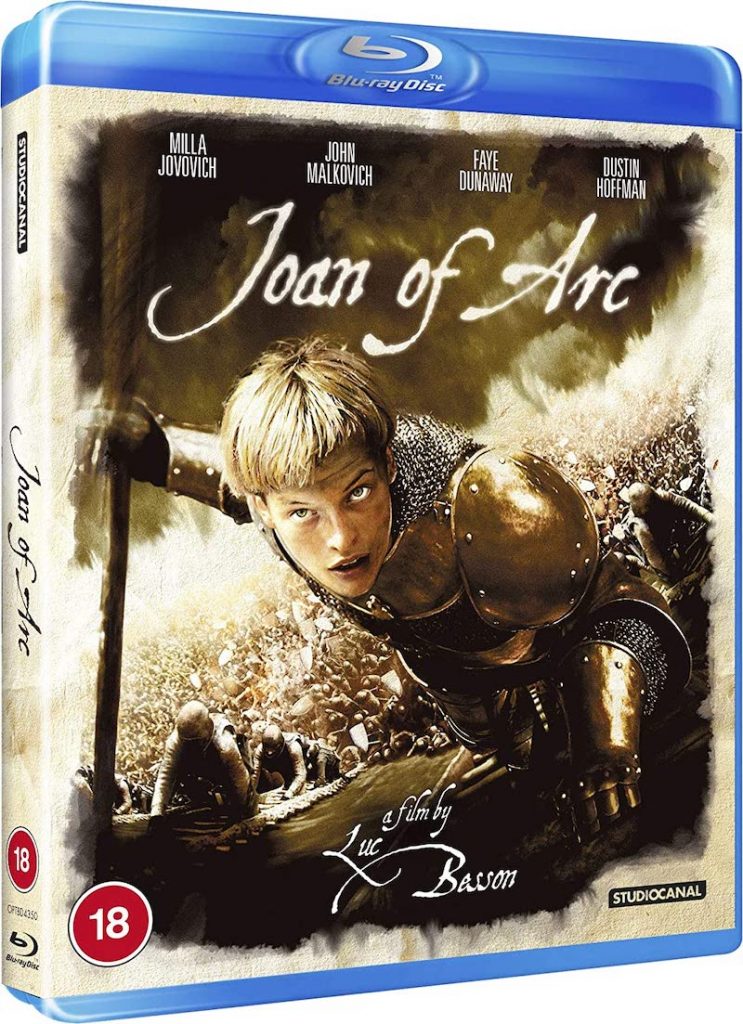
Luc Besson’s The Messenger: The Story of Joan of Arc comes to Blu-ray courtesy of StudioCanal (where it’s been renamed Joan of Arc), although it’s a shame it hasn’t been upgraded to 4K Ultra HD alongside The Fifth Element, released the same day. There are also no extra features on the disc, which is a terrible shame and wasted opportunity.
However, the disc’s DTS-HD 5. Master Audio is excellent, with the smallest details clearly audible and mixed well into the battle scenes. Visually, Besson’s palette is often washed-out and the lighting sometimes leaves portions of the frame rather dark. That apart, however, the transfer can’t be faulted for clarity.

director: Luc Besson.
writers: Luc Besson & Andrew Birkin.
starring: Milla Jovovich, John Malkovich, Faye Dunaway, Dustin Hoffman, Pascal Greggory, Vincent Cassel, Tchéky Karyo, Richard Ridings, Desmond Harrington & Timothy West.
